#artist is paul fischer
Text
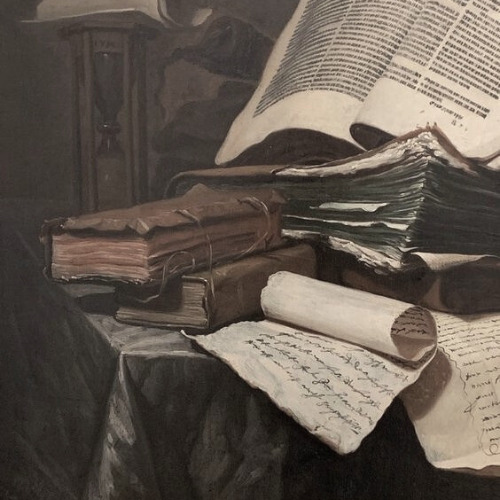





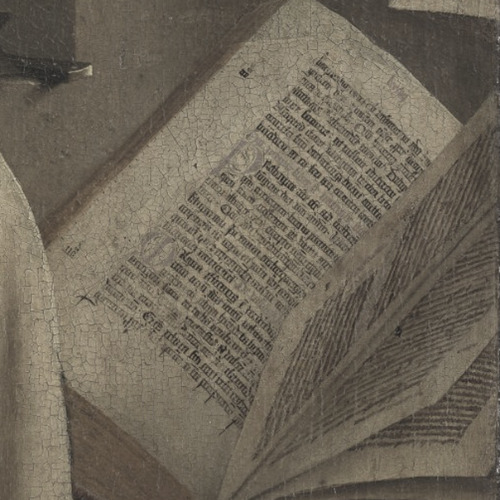
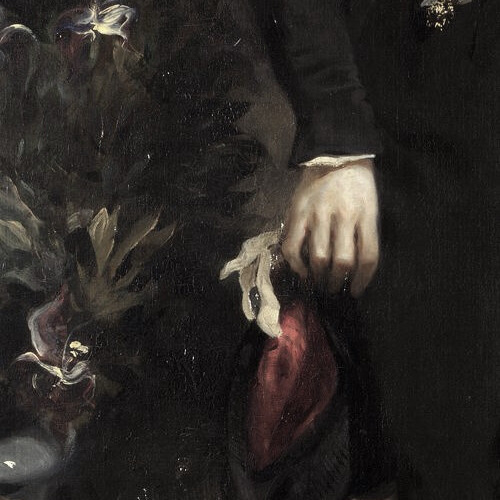
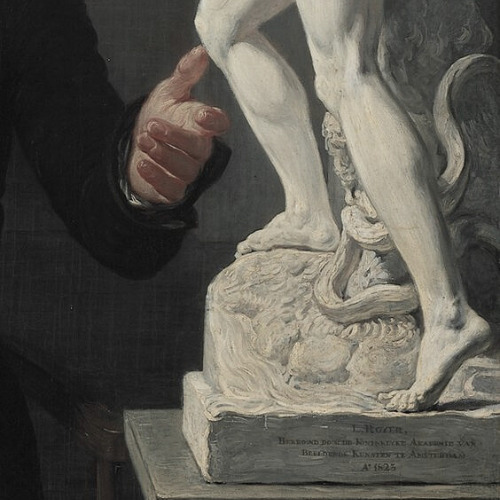
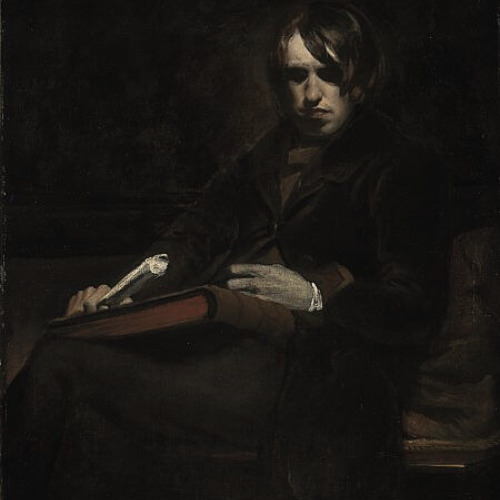


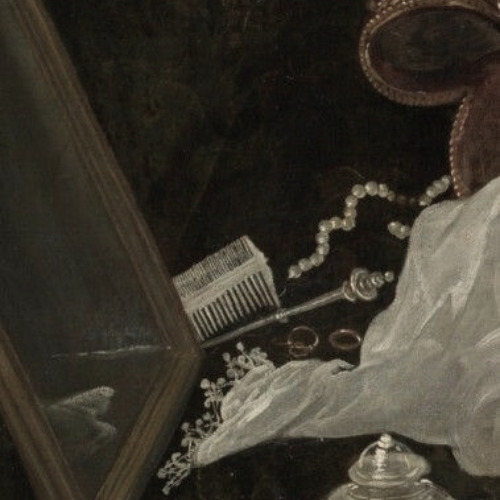


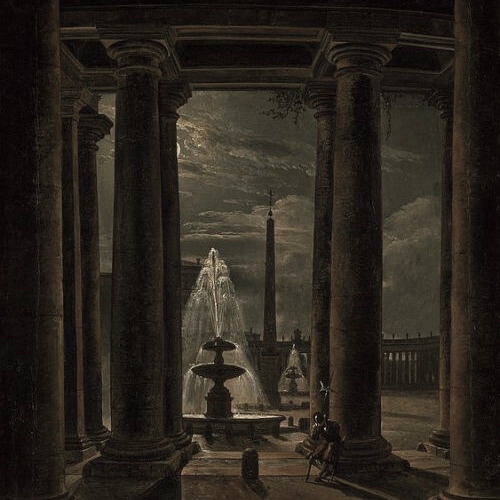
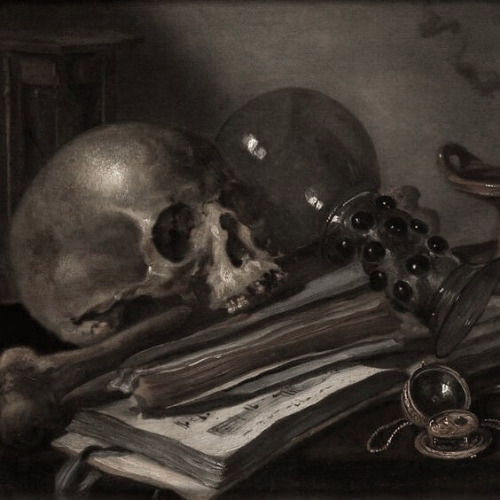
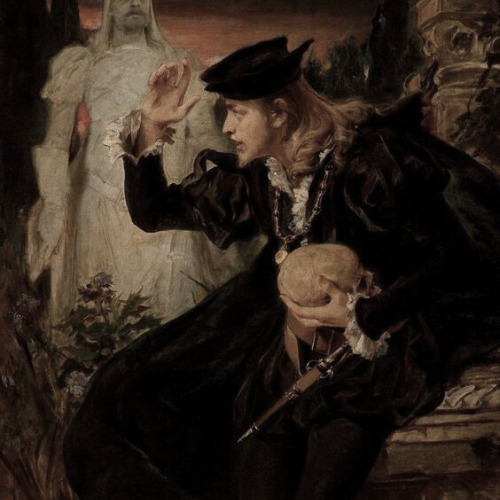
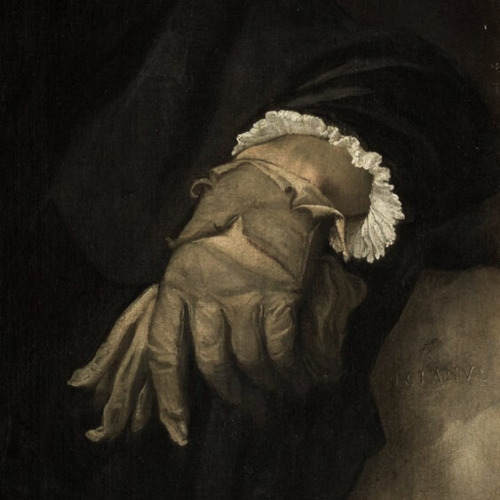

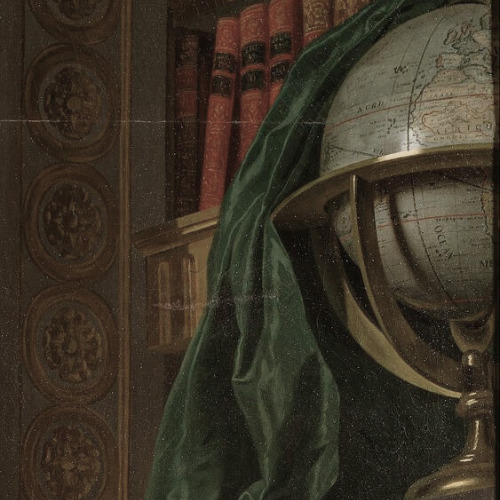



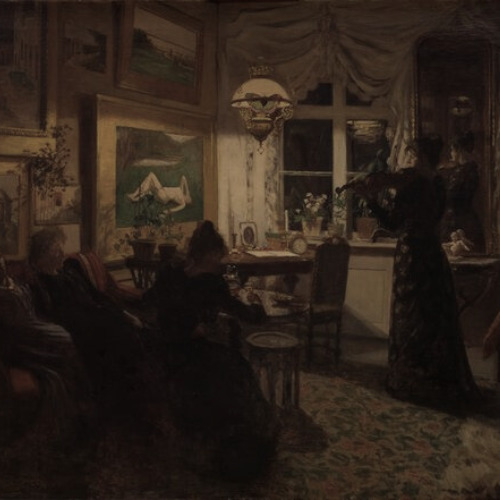
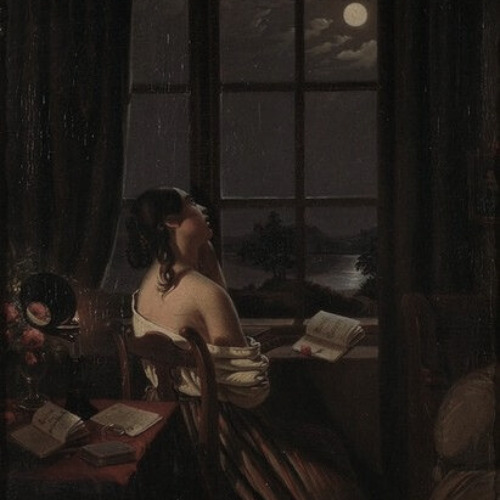


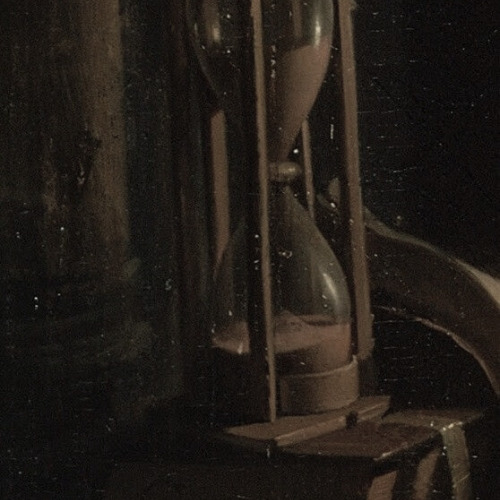

art aesthetics: dark acadmia
#cant find artist#artist is gerrit dou#artist is paul fischer#artist is james carroll beckwith#artist is sir anthony van dyck#artist is nicolas regnier#artist is hubert and jan van eyck#artist is eugene delacroix#artist is jan willem pieneman#artist is sir william fettes douglas#artist is wilhelm bendz#artist is carl holsoe#artist is jacopo tintoretto#artist is thomas wyck#artist is lindsay bernard hall#artist is franz ludwig catel#artist is pieter claesz#artist is pedro americo#artist is titian#artist is giorgio vasari#artist is alexander roslin#artist is jusepe de ribera#artist is anne francoise couloumy#-artist is carl holsoe#artist is anna petersen#artist is peter hasenclever#artist is irving ramsey wiles#artist is georges de la tour#artist is unknown-#art aesthetics
376 notes
·
View notes
Text
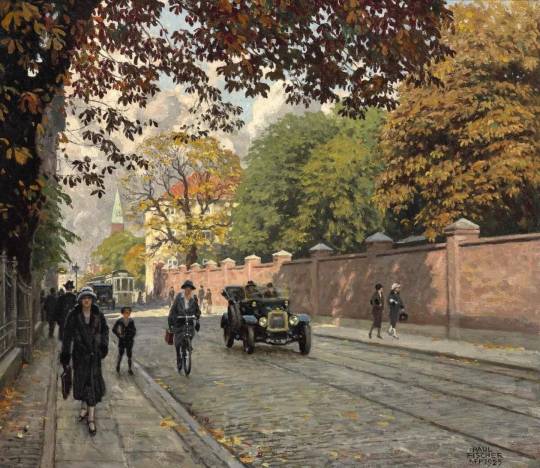
"Autumn on the Street in Copenhagen". 192
By Paul Gustav Fischer. Danish. 1860-1934.
> Rita M Sjöholm > Painters from the North
5 notes
·
View notes
Text

(Street Scene, Kobmagergade/ Paul Gustave Fischer; 1860-1934)
#night#blue#sky#blue sky#beautiful#lights#city#street#street scene#kobmagergade#paul gustave fischer#art#art museum#artwork#art pieces#artistic#paint#painting#picture#vintage#enchanted
40 notes
·
View notes
Text
“When you're here don't need to say no more, nothing in the world that i would change it for"

Summer on the beach — Paul Fischer
#louisartbot#louis tomlinson#artaslouis#art#louis tomlinson lyrics#lyric parallels#artists on tumblr#faith in the future#louis tomlinson art#walls#paul fischer
6 notes
·
View notes
Text

Paul Fischer, Young Women Bathing from The Cliffs
0 notes
Text
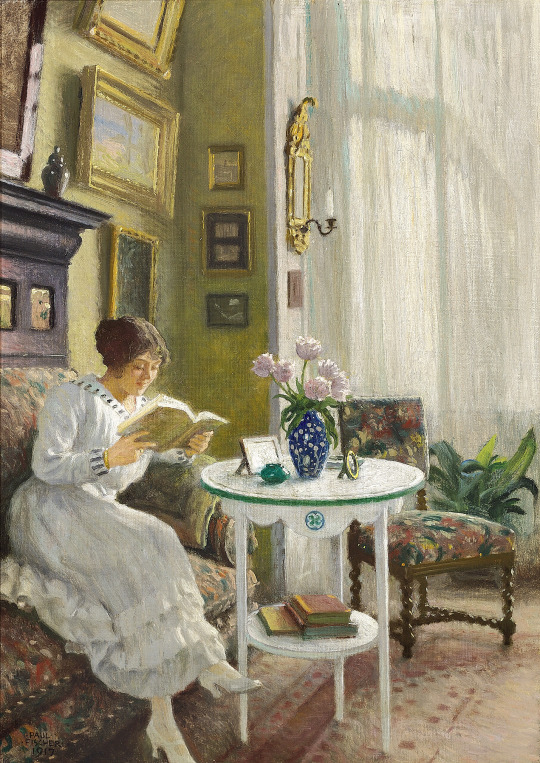
Paul Gustav Fischer - The artist's wife Musse reading in their home at Sofievej, Copenhagen (1917)
266 notes
·
View notes
Text
dance with me
[spencer reid x reader]



summary: who would have thought that a glass of water could make you sway in your feet in more ways than one.
pairing: s.reid x f!reader
w.c: 1.9K
warnings/content: exes that are still in love with each other trope; heartbreak!!; I'm a willifer stan, if you can tell; jack and henry being besties; pinky promises; dancing with an ex lover; I promise you heartache ™; mentions of alcohol and being drunk; ex partners walking down memory lane (longing); angst <3; poorly edited because I'm sleepy.
a/n: this is part of a short series that started with this one shot and someone asked me to do a part 2 but I ended up writing another stand-alone that may or may not connect with the first one.
navi
masterpost
cm masterlist
would you like to enter my taglist?
━━━━━━━━━━━━━━
jj was one of the most beautiful brides you had ever seen. her dress fit her perfectly, it seemed to have been made especially for her, even though it belonged to her mother.
will looked at her as if she was the sky holding all of the stars. no one else was around as they danced, just the two of them, you could see it in their eyes.
you were kind of drunk on their love, from afar. and, of course, you might be a little inebriated because of the few champagne glasses you've had since the party started. in your defense, it was all penelope's fault, she offered you the first glass. your will to loosen up did the rest.
you almost fell down on your butt from the way henry pulled at your dress. you didn't blame him, he's been excited all night and he had to let it all out as much as he wanted. he yanked you closer to the spot he and jack were playing on the grass of the rossi household.
“uncle spencer told us the secret of his magic trick.” jack explained as you stared at the cards laid out in front of them. “but we can't remember it.”
a chuckled escaped your lips.
“and that's exactly why he told you.”
henry pouted, his blonde strands falling from behind his ear. giving him a soft smile, you brushed them back, booping his nose as he giggled in response.
“i know why you brought me here and I'm sorry to say that I have no idea how uncle spencer does his magic tricks.” you lament as they both protest in defeat. “he never told me. but I swear if he ever does, you'll be the first to know, okay?”
“promise?” jack hotchner raised his pinky and henry made sure to imitate him eagerly.
you nodded, intertwining your own pinky with theirs. “i promise.” you whispered, kissing both of their small cheeks before standing up. penelope and derek had approached your little group and you took advantage of that to walk inside the house and fetch a cup of water. your vision was starting to get a little blurry and that was the indication you had to know that your alcohol consumption was officially over for the night.
someone else seemed to share your train of thought.
“appreciating art?”
spencer was concentrated analysing one of the art pieces in the mansion's hallway. he didn't act startled at your presence, which meant he already felt you approaching beforehand. you stared down at your heels, wondering if they were too loud.
“it's an interesting painting,” you looked up as he said it. his eyes settled on you. “do you know this one?”
“a street scene.” you responded, shifting on your feet. your feet were starting to hurt. you can't remember for how long you have been on those heels. “can't remember the artist though.”
“paul fischer,” spencer promptly said. “it was painted in 1902. he was also known as copenhagen's painter because of how much he represented his homeland on his paintings.”
you let out a slow hum, walking past him to reach the kitchen. “over a century ago.”
“109 years ago.” he chuckled as you chugged down an entire glass of water and filled it up again. “thirsty?”
you lifted a finger, a silent request to wait. spencer leaned on the kitchen counter, observing you with a glint of amusement in his eyes.
“i think I may have...” you exhaled, “drank too much.”
spencer mumbled something that you weren't able to hear, but you didn't need to. you approached him slowly, also leaning on the countertop, the marble cold against your palms. narrowing your eyes at him, you said. “don't even say it.”
he had the decency to act bewildered though his lips betrayed him with a quirk on the edges. “say what?”
“you were teasing me just now.”
“i was not.” spencer raised a brow, sending a giddy smile your way. “i was simply stating that you can get carried away at parties.”
“i had two glasses.” you pouted, “maybe four.” you admitted, a half-assed lie. you had no idea how many you have had during the night. just that they were working really fast in your system.
the two of you stayed there. speaking in low voices, rather discreetly, as the party happened outside. the house was quiet but you could make out some loud voices from the open window.
your ears picked up a soft melody, and the voices quietened down. you figured it was the moment for some slow dancing.
“dance with me.”
you'd think you were the one who said that, given your state of mind a few minutes ago. spencer looked handsome in a suit, it was almost out of character for him, you never saw him without one of his sweater vests. you don't deny he's an attractive man. everything about him is attractive, not only the physical aspects but they did him justice alright.
those were the things you noticed when you were dating. and those are still the things you notice as you are exes. you wonder if there is anything you don't notice about spencer.
you froze at his outstretched hand.
oh, he said that.
is he inviting me to dance?
“me?” his grin made you blush. and to think you had been sober just now.
“yes.” he wriggled his fingers. “dance with me?” the tone of his voice carried a tinge of uncertainty.
your body responded before your mouth could. as your hand intertwined with his, the feeling of returning somewhere you had longed for so long squeezed your chest.
with your chin resting against his shoulder and the warmth of his touch enveloping your waist, the music didn't reach the kitchen anymore. you couldn't hear anything else but your heartbeat.
“you don't even like dancing.” you joked, letting him lead your swaying as you tried not to step on his feet.
his answer was closing the gap between the two of you, your bodies flush against each other. you didn't hesitate before laying your cheek on his shoulder. your fingers intertwined behind his neck, grazing against his uncovered skin.
it felt so familiar and normal that none of you flinched away. as if it was how it was supposed to be.
“i like it when I'm with you.” he said, breath tickling the side of your neck.
“the boys...” you drawled out, a smile stretching on your lips absentmindedly. “they asked me how you did your magic tricks. one of them, actually. the one with the cards.” his chuckled made his body shake a little.
“did they? but I told them.”
“you know kids don't learn it the first time. that's why you told them.”
“i can't just reveal my magic tricks like that, can I?” you pulled back a little to make sure he saw you glare at him. his grin didn't let you scowl much longer though.
shaking your head at him in faux disappointment was the worst thing you could have possibly done at that moment. spencer knew that quirk of lips as he knew his own brain and he recognized that tilt of head because of all the times you did that, it only meant one thing: you were about to tease him.
that was his weakness. your lazy smile along with your fluttering eyelashes. basically, your whole charming persona. you. you were his weakness. spencer has admitted that since he knew he was in love with you.
it used to overwhelm him to be this close to somebody, the warmth of two bodies colliding felt too much of a torture for him. until you came along and showed him what safety felt like.
he felt safe when your fingertips grazed the nape of his neck. when you laid your head on his shoulder and when you softly mumbled the song playing outside right by his ear.
you're right here and he's missing you.
isn't that crazy?
“that used to be my favourite song.” you said, caressing the spot behind his earlobe. his eyes were shut as his feet followed the slow rhythm of the melody.
he hummed, “it was all that you listened to for an entire month.” your laugh brought joy to him as he looked down at you. happiness looked good on you.
“yes.” you shrugged, touching his jaw gently. “but you enjoyed it.”
“i did.” he confessed. “it's calm. soothing.” like your voice. I never get tired of it.
he brushed a strand behind your ear. “is it not your favourite song anymore?”
and just like that, the light in your eyes dimmed. it might have been imperceptible if he wasn't that close. too close.
do people ever feel so comfortable around ex partners as he is with you right now? dancing to a song you used to sing it for him?
“it hurts to listen to it.” your voice cracked at the end of the sentence and you rested your head on his shoulder as if you were attempting to avoid his gaze. it physically painted him when you did that. “reminds me of you.”
he thought about apologising. he thought about asking why does it remind you of me and why would it hurt. but spencer was aware of the answer to both questions. he knew why you couldn't listen to it without memories swarming into your brain like a storm. he knew how hard it was and how much it absolutely crushed you that your favourite song reminded you of an ex lover. of him.
he chose to stay silent.
at the same time he wanted to spare you any emotional pain, he wanted to hear if you were hurting as much as he was. how unfair was that? loving you and having you in his arms but not being able to be with you like he wanted to?
was it hard for you too? did it make you want to take back the words you said just like he wanted to take back everything he had said? did it destroy you wholeheartedly?
spencer doesn't know for how long you stayed there at rossi's kitchen, swaying to a song that no longer played. at some point, you retracted your hand from his neck, lowering slightly to take off your high heels, immediately releasing a breath of relief.
and your touch lingered like a ghost. his soul was void. vulnerable and lonely. once again.
emily walked in the kitchen and you two acted as a couple that had been caught doing something wrong. you had been talking — dancing for just a previous moment — there wasn't anything wrong with that, was it?
spencer felt out of it all of a sudden. at one moment, he knows how to act around you, he feels as if he can touch you and hold you like he never missed his chance. and then, a second later, you're walking away and he's not stopping you from leaving.
“it's still my favourite song.”
and it was his, too.
━━━━━━━━━━━━━━
a/n: the dancing part was definitely not inspired by mitski's song my love mine all mine.
source: the painting mentioned
━━━━━━━━━━━━━━
taglist: @lilyviolets
#reader insert#criminal minds fanfiction#spencer reid fanfic#spencer reid x reader#spencer reid fanfiction#spencer reid x you
92 notes
·
View notes
Text
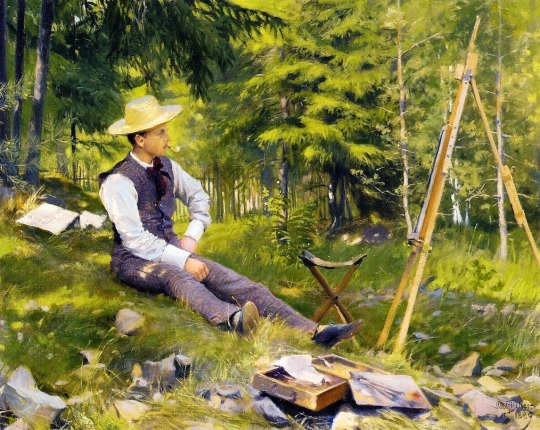
Paul Gustav Fischer (Danish 1860 – 1934) The Artist Painting En Plein Air, 1890
38 notes
·
View notes
Text

Paul Fischer
View from the artist's balcony, Sortedams Dosseringen
1887
45 notes
·
View notes
Text
THIS DAY IN GAY HISTORY
based on: The White Crane Institute's 'Gay Wisdom', Gay Birthdays, Gay For Today, Famous GLBT, glbt-Gay Encylopedia, Today in Gay History, Wikipedia, and more … April 28



1901 – Weaver W. Adams (d.1963) was an American chess master, author, and opening theoretician. His greatest competitive achievement was winning the U.S. Open Championship in 1948. He played in the U.S. Championship five times.
Adams is most famous for his controversial claim that the first move 1.e4 confers a winning advantage upon White. He continually advocated this theory in books and magazine articles from 1939 until shortly before his death. Adams' claim has generally been scorned by the chess world. However, International Master Hans Berliner in a 1999 book professed admiration for Adams, and similarly claimed that White may claim a winning advantage, albeit with 1.d4, not 1.e4.
Adams did not succeed in showing the validity of his theory in his own tournament and match play. His results suffered because he published his analysis of White's supposed winning lines, thus forfeiting the element of surprise and enabling his opponents to prepare responses to his pet lines. Future World Champion Bobby Fischer used the Adams Attack, the line Adams advocated against the Najdorf Variation of the Sicilian Defense (6.h3), with success.
Adams' parents were Frank H. Adams and Ethel Weaver Adams. He wrote that he was not directly related to Presidents John Adams and John Quincy Adams, but that the Adamses "in and about Massachusetts are mostly of the same family, deriving from a Henry Adams who landed in Braintree in 1644". Both Weaver and Warren were his ancestral names. His mother's side has been traced back to the founding fathers of America. His father's side has not as yet been established.
Grandmaster Arnold Denker related of Weaver that he was "a master who inherited a chicken farm and who was – so to speak – a White man clear through. He wrote a book, White to Play and Win, lived in a White house on White Street, chewed antacid pills that left the inside of his mouth perpetually White, and raised only white chickens that laid white eggs. Predictably, Adams' business was soon no more than a shell." Harry Golombek wrote in 1977 that Adams, whom he described as "author of White to Play and Win and a sodium bicarbonate addict", was on Golombek's "reserves" list for "the ten most interesting personages" from the past 100 years.
Adams was homosexual, as discussed in his autobiographical article reprinted in Chess Pride.

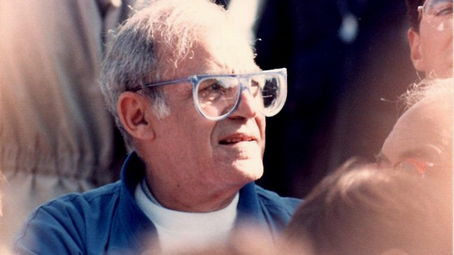
1920 – John Strauss (d.2011) was an American television and film composer and music editor. Strauss co-wrote the theme song for the NBC television series, Car 54, Where Are You?, with Nat Hiken. He also won a Grammy Award for his work as the producer of the soundtrack for the 1984 film, Amadeus. He was also frequently collaborated with director Woody Allen in his films, including Take the Money and Run in 1969 and Everything You Always Wanted to Know About Sex* (*But Were Afraid to Ask) in 1972.
Strauss was born in New York City. He served in the United States Army in both North Africa and France during World War II. He studied at Yale University with Paul Hindemith following the end of the war.
In addition to co-writing the theme song for the TV sitcom Car 54, Where Are You?, Strauss won an Emmy Award in sound editing for his work on the 1978 television movie, The Amazing Howard Hughes. He also wrote the theme song for The Phil Silvers Show. Strauss appeared briefly as an orchestra conductor in the film Amadeus.
Strauss married actress Charlotte Rae on November 4, 1951, but the marriage ended in divorce when he came out as bisexual in 1976. The couple had two sons. Strauss subsequently became life partners with artist Lionel Friedman.
"They were strong advocates for gay rights, and were arrested during a protest at the Los Angeles office of then-Gov. Pete Wilson," their son Larry said. "They also took part in national marches for gay and lesbian rights, and participated in the making of the AIDS memorial quilt."
Friedman died in 2003. A longtime resident of Los Angeles, Strauss died in that city on February 14, 2011, of Parkinson's disease, at the age of 90.

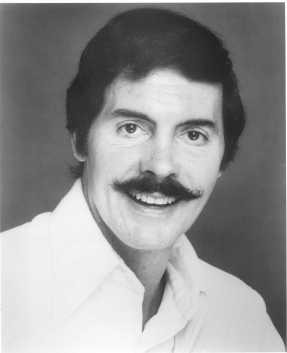
1929 – The Gay activist and writer John Paul Hudson was born on this date (d.2002). With all the humility his detractors claimed he lacks, John Paul Hudson called himself "a militant Gay journalist of the earliest days of Gay Liberation movement."
Hudson was a pioneer of the Gay press, a contributor to a half dozen of the earliest Gay periodicals beginning with Gay in 1969 and The Advocate in 1970, and including David, Gaysweek, NewsWest, Flash and Vector.
Hudson was the organiser of New York City's first gay pride march in 1970 in the wake of the Stonewall riots. In the years following Stonewall, he was a tireless organizer, his growing radicalism more and more reflected in his writing as he himself became increasingly disillusioned with the "organized Gay community" he'd helped to bring about. Like many radicals he was pure of heart and intolerant of hypocrisy. Unlike most radicals, he was not self- righteous. Like all radicals he was unwilling to allow history the necessary time to catch up with itself, insisting that all social changes must be effected NOW.

More than three decades ago, Hudson (as John Francis Hunter) gave us those eccentric and literate guides, The Gay Insider (1971) and The Gay Insider USA: A Hunter's Guide to New York and a Thesaurus of Phallic Lore (1972) and Superstar Murder?: What Happened To Good Queen Bess Her Last Night At The Cosmopolitan Baths?(1976). Without them there could have been no States of Desire, no Gayellow Pages. John Paul Hudson was, in short, an innovator, with a spirit as impatient as his flesh is attractive.
Shortly before his passing, Hudson had a book, that he had been working on for several years, published. The title is "The Lost Commandment: How to Be Gay in the 21st Century." He died in Honesdale, Pennsylvania.


1964 – David Hampton (d.2003) was an American con artist who gained infamy in the 1980s after milking a group of wealthy Manhattanites out of thousands of dollars by convincing them he was Sidney Poitier's son. His story became the inspiration for a play and later a movie, titled Six Degrees of Separation.
Hampton, eldest son of an attorney in Buffalo, moved to New York City in 1981 and stumbled upon his now-famous ruse in 1983, when he and another man were attempting to gain entry into Studio 54. Unable to do so, Hampton's partner decided to pose as Gregory Peck's son, while Hampton assumed the identity of Sidney Poitier's son. They were ushered in as celebrities.
Hampton began employing the persona of "David Poitier" to cadge free meals in restaurants. He also persuaded at least a dozen people into letting him stay with them and give him money, including Melanie Griffith; Gary Sinise; Calvin Klein; John Jay Iselin, the president of WNET; Osborn Elliott, the dean of the Columbia University Graduate School of Journalism; and a Manhattan urologist. He told some of them that he was an acquaintance of their children, some that he had just missed his plane to Los Angeles and that all his luggage was on it, some that his belongings had been stolen.
Playwright John Guare became interested in Hampton's story through his friendship with two of his duped hosts — Osborn and Inger Elliott, who had been outraged to find "David Poitier" in bed with another man the morning after they let him into their home. Six Degrees of Separation opened at the Lincoln Center in May 1990, and became a long-running success.
Hampton attempted to turn the play's success to his own advantage, giving interviews to the press, gate-crashing a producers' party, and beginning a campaign of harassment against Guare that included phone calls and death threats, prompting Guare to apply for a restraining order in April 1991, which was unsuccessful. In the fall of 1991, Hampton filed a $100 million lawsuit, claiming that the play had stolen the copyright on his persona and his story. His lawsuit was eventually dismissed.
After the play and film Six Degrees of Separation made his original con well-known, Hampton evolved other false identities and traveled extensively to find new victims. Hampton was in and out of prison in numerous states. He was interviewed during each break from incarceration by a journalist with the TV show The Justice Files, seen in the USA on the Discovery Channel.
After swearing he had changed his life, Hampton continued traveling at least as late as 1996, where he found a large number of men who, even if they'd heard of his notoriety from the East Coast, had never seen his picture or the press, allowing him to move about unnoticed and work on numerous victims at one time. In Spring 1996, Hampton arrived in Seattle, Washington, USA, posing as Antonio de Montilio, the son of a wealthy District of Columbia physician. Due to his light skin color, victims claimed he could easily be believed as the Puerto Rican he claimed. Typically, his story was colorful. Hampton claimed to have been mugged upon arriving in Seattle early for a work assignment for Vogue magazine. He was to interview Bill Gates but was suddenly in peril as his wallet was stolen and nothing could be replaced until that weekend was over. Hampton managed to woo two people within blocks of each other without their being aware that he was working them both. It is believed that he was first drawn to one victim, Justin Baird, because Baird had been identified at RPlace as the official taking in fundraising dollars from Bunny Brigade volunteers as they returned from their collection rounds.
In July 2003, David Hampton died of AIDS-related complications.


1976 – Michael Carbonaro is an American actor, magician, and improv artist. He is known for his hidden-camera "Magic Clerk" segments on The Tonight Show, in which he tricks unsuspecting customers at a convenience store. This led to a television series with a similar premise, The Carbonaro Effect, which premiered on TruTV on May 15, 2014, following a preview episode on April 1, 2014.
Born and raised in Oakdale, New York, on Long Island, the younger of two sons of an electrician father and a nurse mother, he attended Connetquot High School in Bohemia, New York. He began performing magic professionally while growing up, earning his college tuition while still in his teens. He holds a bachelor's degree in drama from NYU Tisch School of the Arts.
In 2004, he was featured on Chappelle's Show on Comedy Central. Following that, Carbonaro played Andy Wilson in the 2006 comedy Another Gay Movie. For his work, he won the Outfest "Best Actor in a Feature Film" award. Carbonaro has also appeared on All My Children (2006), The Guiding Light (2006), and Law & Order: Special Victims Unit (2007).
Carbonaro is openly gay. He has been married to actor Peter Stickles since 2014.


1989 – Taylor Frey is an American actor. He is best known for playing Don Hagerty in It Chapter Two (2019)
Taylor attended Viewmont High School and got his bachelor's from Brigham Young University. Due to BYU's honor code forbidding "homosexual contact," he was almost expelled during his time there. The school later cleared him for lack of evidence.
Frey has appeared in G.B.F. (film), Gossip Girl, The Carrie Diaries (TV series), Gabriele Muccino's Summertime, It Chapter Two, and Days of Our Lives. He began his career as a Broadway actor. He performed in the plays: national tour of Hairspray (musical), How to Succeed in Business Without Really Trying (musical), South Pacific (musical), Finian's Rainbow. and The View Upstairs.
Frey grew up Mormon. His hometown is in Las Vegas, Nevada. He is openly gay. Frey married American actor and singer Kyle Dean Massey in 2016 in Palm Springs, CA. The couple currently live in West Hollywood, CA.


1990 – A pipe bomb explodes in Uncle Charlie's, a Greenwich Village Gay bar, injuring three people. In protest, Queer Nation mobilizes 1,000 protestors in a matter of hours. Angry marchers fill the streets, carrying the banner "Dykes and Fags Bash Back." 12 men were charged in a terrorist conspiracy to blow up NYC landmarks. El Sayyid A. Nosair, one of the alleged leaders of the terrorist ring, attacked the bar because he objected to homosexuality on religious grounds.


6 notes
·
View notes
Text

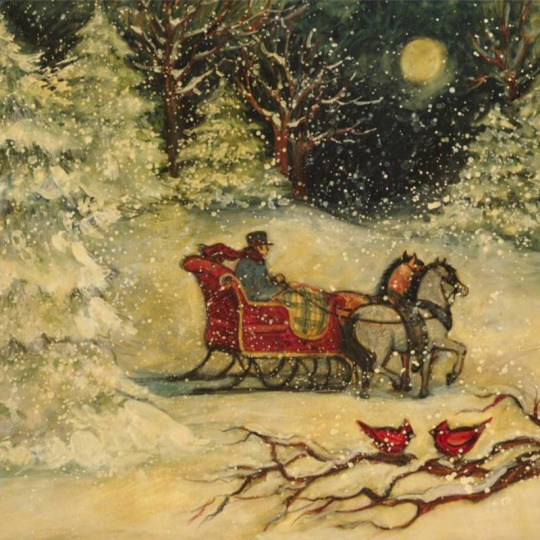
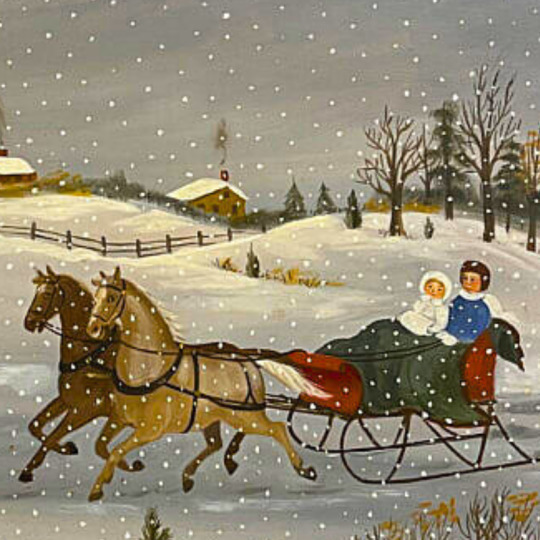
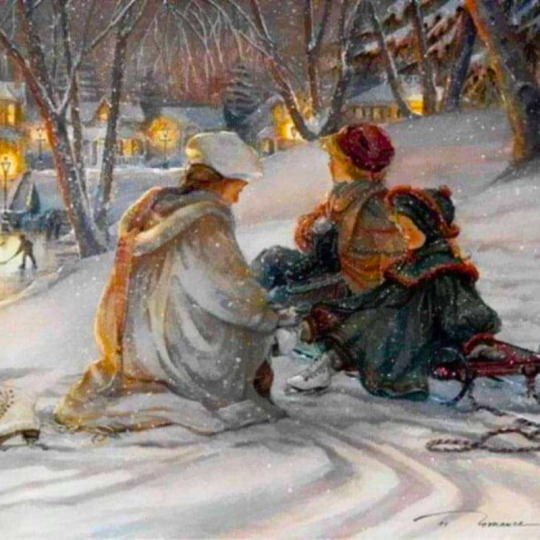

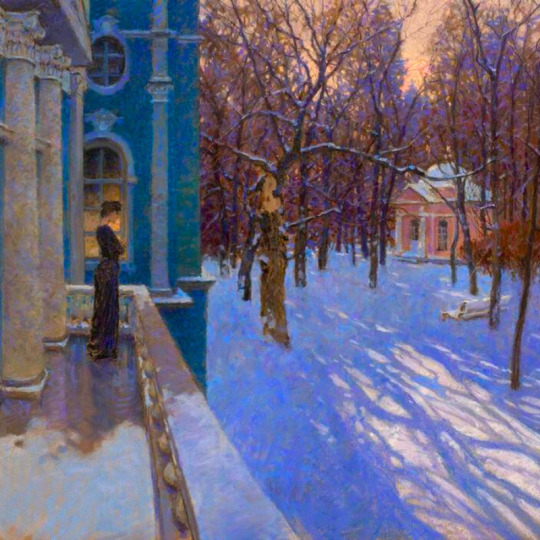
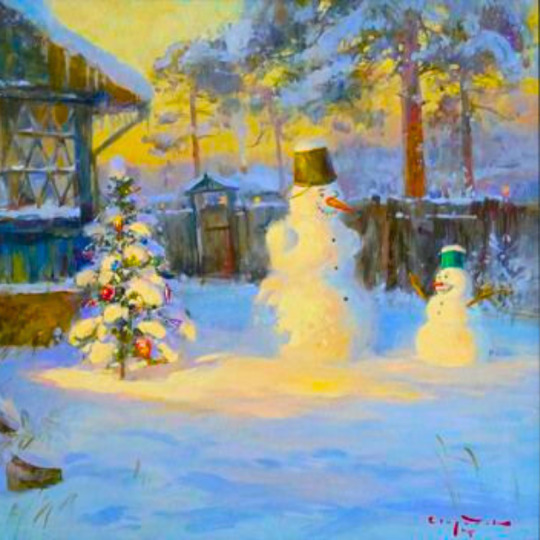

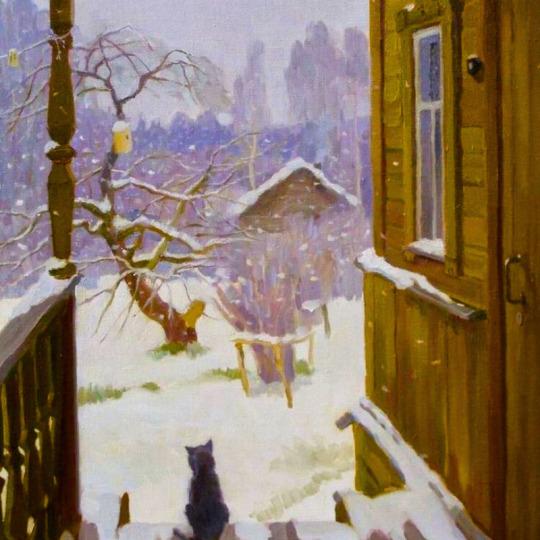






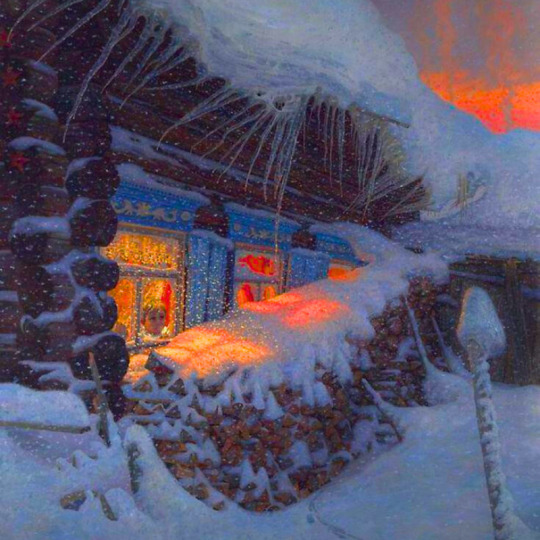
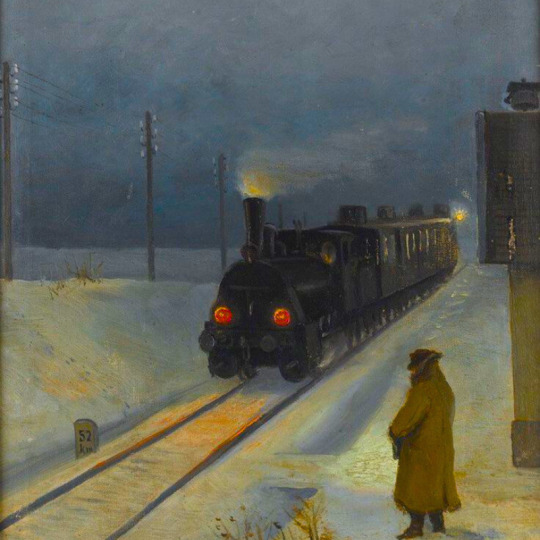

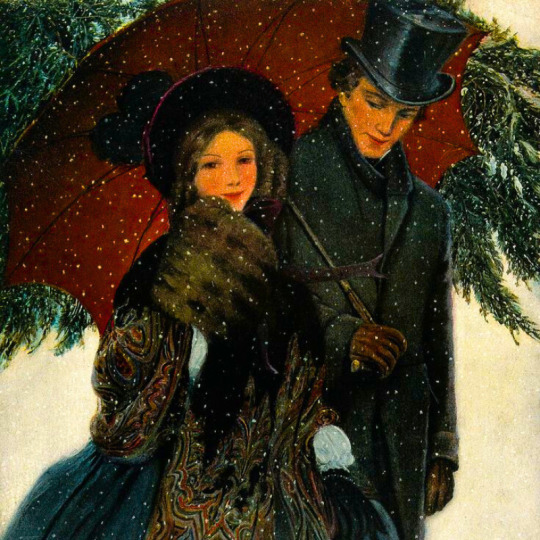
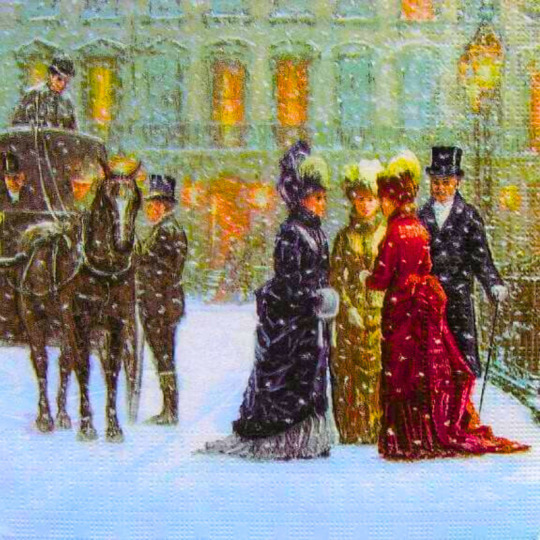
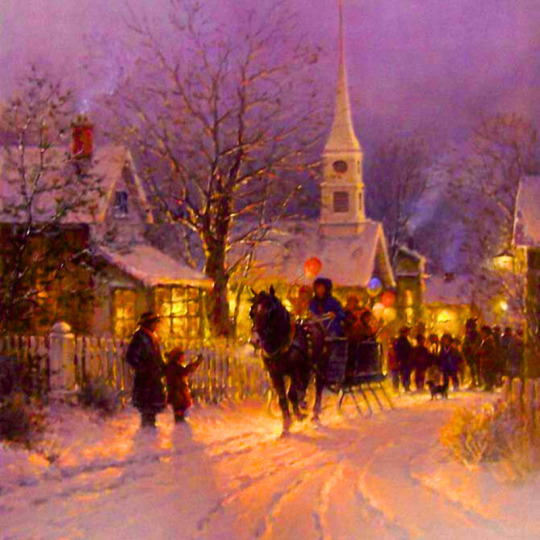


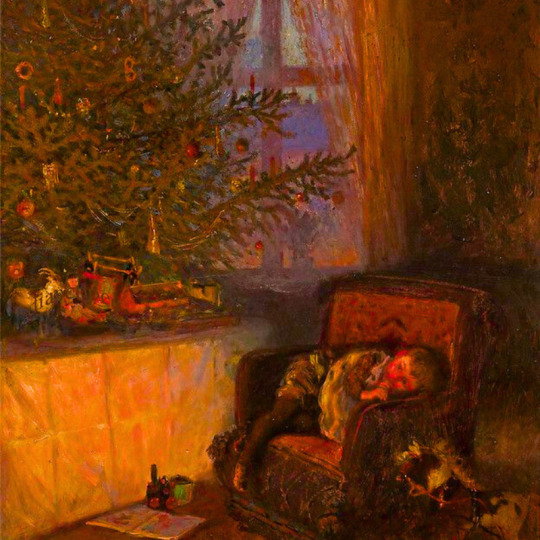

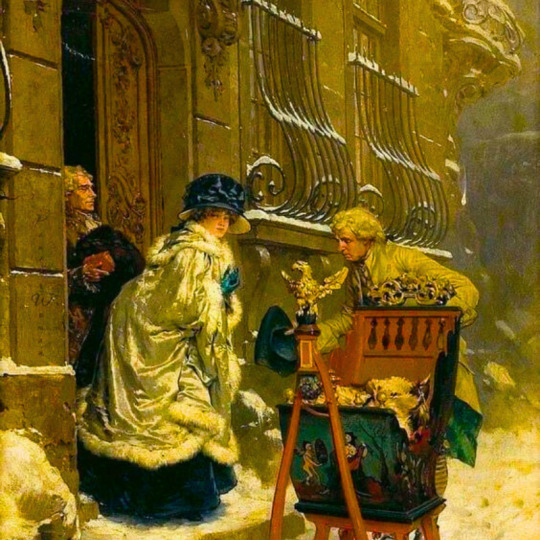
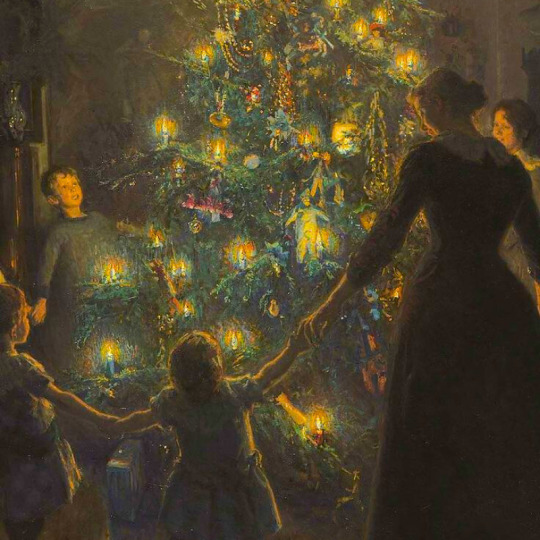



winter + art
#no title but its by henry boughton#i cant find artist or title#winter sleigh ride by martha cahoon#evening skaters by trisha r omance#no title but its by julius von klever#no title but its by sergery ossuik#soon the new year by sergey sviridov#unknown artist#no title no artist#no artist + no title#promenade on a winter day by francois gailliard#bergkapelle in winter by ernst ferdinand oehme#cold winter day by linda jacobus#winter by paul gustav fischer#christmas night by viktor mikhailovich lukyanov#a winter's tale by tatiana yumashnova#the night train by abraham neumann#the north star by sydney laurence#young couple in winter by unknown#between friends by alan maley#no title but by gerald harvey jones#no title but its by richard savoie#no title by anastasiya okhrimemnko#by the quiet hearth by maximilian schaefer#the nutcracker by scott gustafson#no title but by frederik hendrik kaemmer#christmas eve story by johansen viggo#no title by toth gabor#no title by george sheridan knowles#a mansion in the winter by stanislav zhukovsky
477 notes
·
View notes
Text
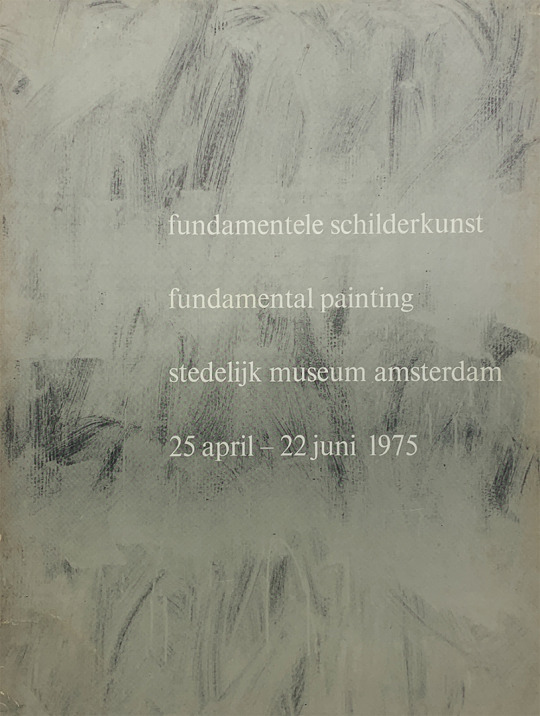
Fundamentele schilderkunst / Fundamental Painting, Stedelijk Museum Amsterdam, 1975

Artists: Jaap Berghuis, Jake Berthot, Louis Cane, Alan Charlton, Raimund Girke, Richard Jackson, Robert Mangold, Brice Marden, Agnes Martin, Tomas Rajlich, Edda Renouf, Gerhard Ritcher, Stephen Rosenthal, Robert Ryman, Kees Smits, Marthe Wéry, Jerry Zeniuk
Design: Wim Crouwel, Daphne van Peski / Total Design
Photographs: Martien Coppens, Dorothee Fischer, J.J. de Goede, Paul Maenz, André Morain, Nathan Rabin, Cor van Weele, Dick Wolters
(on the way of L'Arengario Studio Bibliografico, FTN books & Art)
#graphic design#art#exhibition#catalogue#catalog#cover#wim crouwel#daphne duijvelshoff#total design#stedelijk museum amsterdam#1970s
16 notes
·
View notes
Text

"Street Scene in Winter. Copenhagen".
By Paul Gustav Fischer. Danish. 1860-1934.
> Freida Wolf > Pientures
3 notes
·
View notes
Text
Squash's Book Roundup 2023
Last year I read 67 books. This year my goal was 70, but I very quickly passed that, so in total I read 92 books this year. Honestly I have no idea how I did it, it just sort of happened. My other goal was to read an equal amount of fiction and nonfiction this year (usually fiction dominates), and I was successful in that as well. Another goal which I didn’t have at the outset but which kind of organically happened after the first month or so of reading was that I wanted to read mostly strange/experimental/transgressive/unusual fiction. My nonfiction choices were just whatever looked interesting or cool, but I also organically developed a goal of reading a wider spread of subjects/genres of nonfiction. A lot of the books I read this year were books I’d never heard of, but stumbled across at work. Also, finally more than 1/3 of what I read was published in the 21st century.
I’ll do superlatives and commentary at the end, so here is what I read in 2023:
-The Commitments by Roddy Doyle
-A Simple Story: The Last Malambo by Leila Guerriero
-The Hero With A Thousand Faces by Joseph Campbell
-Uzumaki by Junji Ito
-Chroma by Derek Jarman
-The Emerald Mile: The epic story of the fastest ride in history through the Grand Canyon by Kevin Fedarko
-Venus by Suzan-Lori Parks
-The Hearing Trumpet by Leonora Carrington
-Sacred Sex: Erotic writings from the religions of the world by Robert Bates
-The Virginia State Colony For Epileptics And The Feebleminded by Molly McCully Brown
-A Spy In The House Of Love by Anais Nin
-The Sober Truth: Debunking the bad science behind 12-step programs and the rehab industry by Lance Dodes
-The Sailor Who Fell From Grace With The Sea by Yukio Mishima
-The Aliens by Annie Baker
-The Criminal Child And Other Essays by Jean Genet
-Aimee and Jaguar: A Love Story, Berlin 1943 by Erica Fischer
-The Master And Margarita by Mikhail Bulgakov
-The Mustache by Emmanuel Carriere
-Maldoror by Comte de Lautreamont
-Narrow Rooms by James Purdy
-At Your Own Risk by Derek Jarman
-Escape From Freedom by Erich Fromm
-Countdown: A Subterranean Magazine #3 by Underground Press Syndicate Collective
-Fabulosa! The story of Britain's secret gay language by Paul Baker
-The Golden Spruce: A true story of myth, madness and greed by John Vaillant
-Querelle de Roberval by Kevin Lambert
-Fire The Bastards! by Jack Green
-Closer by Dennis Cooper
-The Woman In The Dunes by Kobo Abe
-Opium: A Diary Of His Cure by Jean Cocteau
-Worker-Student Action Committees France May '68 by Fredy Perlman and R. Gregoire
-Capitalist Realism by Mark Fisher
-The Sound Of Waves by Yukio Mishima
-One Day In My Life by Bobby Sands
-Corydon by Andre Gide
-Noopiming by Leanne Betasamosake Simpson
-Man Alive: A true story of violence, forgiveness and becoming a man by Thomas Page McBee
-The Artist's Reality: Philosophies of Art by Mark Rothko
-Damage by Josephine Hart
-Schoolgirl by Osamu Dazai
-The Passion According to G.H. by Clarice Lispector
-The Sex Revolts: Gender, Rebellion and Rock n Roll by Simon Reynolds and Joy Press
-The Traffic Power Structure by planka.nu
-Bird Man: The many faces of Robert Straud by Jolene Babyak
-Seven Dada Manifestos by Tristan Tzara
-The Journalist by Harry Mathews
-Bullshit Jobs by David Graeber
-Moscow To The End Of The Line by Venedikt Erofeev
-Morvern Callar by Alan Warner
-The Poetics Of Space by Gaston Bachelard
-A Boy's Own Story by Edmund White
-The Coming Insurrection by The Invisible Committee
-Jesus' Son by Denis Johnson
-Notes From The Sick Room by Steve Finbow
-Artaud The Momo by Antonin Artaud
-Doctor Rat by William Kotzwinkle
-Recollections Of A Part-Time Lady by Minette
-trans girl suicide museum by Hannah Baer
-The 99% Invisible City by Roman Mars
-Sweet Days Of Discipline by Fleur Jaeggy
-Breath: The new science of a lost art by James Nestor
-What We See When We Read by Peter Mendelsund
-The Cardiff Tapes (1972) by Garth Evans
-The Ark Sakura by Kobo Abe
-Mad Like Artaud by Sylvere Lotringer
-The Story Of The Eye by Georges Bataille
-Little Blue Encyclopedia (For Vivian) by Hazel Jane Plante
-Blood And Guts In High School by Kathy Acker
-Summer Fun by Jeanne Thornton
-Splendid's by Jean Genet
-VAS: An Opera In Flatland by Steve Tomasula
-Sorry I'm Late, I Didn't Want To Come: One introvert's year of saying yes by Jessica Pan
-Whores For Gloria by William T. Vollmann
-The Notebooks by Jean-Michel Basquiat, Larry Walsh (editor)
-L'Astragale by Albertine Sarrazin
-The Decay Of Lying and other essays by Oscar Wilde
-The Immortal Life Of Henrietta Lacks by Rebecca Skloot
-Open Throat by Henry Hoke
-Prisoner Of Love by Jean Genet
-The Fifth Wound by Aurora Mattia
-The Communist Manifesto by Karl Marx
-My Friend Anna: The true story of a fake heiress by Rachel DeLoache Williams
-Mammother by Zachary Schomburg
-Building The Commune: Radical democracy in Venezuela by George Cicarello-Maher
-Blackouts by Justin Torres
-Cheapjack by Philip Allingham
-Near To The Wild Heart by Clarice Lispector
-The Trayvon Generation by Elizabeth Alexander
-Skye Papers by Jamika Ajalon
-Exercises In Style by Raymon Queneau
-Tender Buttons by Gertrude Stein
-The Feather Thief: Beauty, Obsession, and the Natural History Heist of the Century by Kirk Wallace Johnson
~Some number factoids~
I read 46 fiction and 46 nonfiction. One book, The Fifth Wound by Aurora Mattia, is fictionalized/embellished autobiography, so it could go half in each category if we wanted to do that, but I put it in the fiction category.
I tried to read as large a variety of nonfiction subjects/genres as I could. A lot of the nonfiction I read has overlapping subjects, so I’ve chosen to sort by the one that seems the most overarching. By subject, I read: 5 art history/criticism, 5 biographies, 1 black studies, 1 drug memoir, 2 essay collections, 2 history, 2 Latin American studies, 4 literary criticism, 1 music history, 2 mythology/religion, 1 nature, 4 political science, 2 psychology, 5 queer studies, 2 science, 1 sociology, 1 travel, 2 true crime, 3 urban planning.
I also read more queer books in general (fiction and nonfiction) than I have in years, coming in at 20 books.
The rest of my commentary and thoughts under a cut because it's fairly long
Here’s a photo of all the books I read that I own a physical copy of (minus Closer by Dennis Cooper which a friend is borrowing):
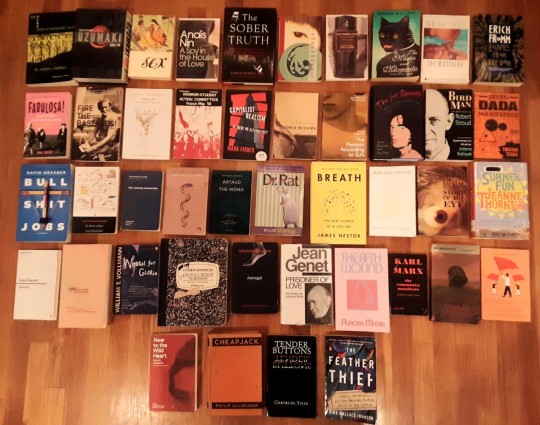
~Superlatives and Thoughts~
I read so many books this year I’m going to do a runner-up for each superlative category.
Favorite book: This is such a hard question this year. I think I gave out more five-star ratings on Goodreads this year than I ever have before. The books that got 5 stars from me this year were A Simple Story: The Last Malambo by Leila Guerriero, Capitalist Realism by Mark Fisher, The Emerald Mile by Kevin Fedarko, The Mustache by Emmanuel Carriere, The Passion According to GH by Clarice Lispector, trans girl suicide museum by Hannah Baer, The Fifth Wound by Aurora Mattia, Mammother by Zachary Schomburg, and Blackouts by Justin Torres.
But I think my favorite book of the year was The Fifth Wound by Aurora Mattia. It is an embellished, fictionalized biography of the author’s life, chronicling a breakup that occurred just before she began her transition, and then a variety of emotional events afterward and her renewal of a connection with that person after a number of years had passed. The writing style is beautiful, extremely decadent, and sits in a sort of venn diagram of poetry, theory, fantasy and biography. My coworker who recommended this book to me said no one she’d recommended it to had finished it because they found it so weird. I read the first 14 pages very slowly because I didn’t exactly know what the book was doing, but I quickly fell completely in love with the imagery and the formatting style and the literary and religious references that have been worked into the book both as touchstones for biography and as vehicles for fantasy. There is a video I remember first seeing years ago, in which a beautiful pinkish corn snake slithers along a hoop that is part of a hanging mobile made of driftwood and macrame and white beads and prism crystals. This was the image that was in the back of my head the entire time I was reading The Fifth Wound, because it matched the decadence and the strangeness and the crystalline beauty of the language and visuals in the book. It is a pretty intense book, absolutely packed with images and emotion and ideas and preserved vignettes where reality and fantasy and theory overlap. It’s one of those books that’s hard to describe because it’s so full. It’s dense not in that the words or ideas are hard to understand, but in that it’s overflowing with imagery and feelings, and it feels like an overflowing treasure chest.
Runner-up:The Mustache by Emmanuel Carriere. However, this book wins for a different superlative, so I’ve written more about it there.
Least favorite book: Querelle de Roberval by Kevin Lambert. I wrote a whole long review of it. In summary, Lambert’s book takes its name from Querelle de Brest, a novel by Jean Genet, and is apparently meant to be an homage to Genet’s work. Unfortunately, Lambert seems to misunderstand or ignore all the important aspects of Genet’s work that make it so compelling, and instead twists certain motifs Genet uses as symbols of love or transcendence into meaningless or negative connotations. He also attempts to use Genet’s mechanic of inserting the author into the narrative and allowing the author to have questionable or conflicting morals in order to emphasize certain aspects of the characters or narrative, except he does so too late in the game and ends up just completely undermining everything he writes. This book made me feel insulted on behalf of Jean Genet and all the philosophical thought he put into his work.
Runner-up: What We See When We Read by Peter Mendelsund. This graphic designer claims that when people read they don’t actually imagine what characters look like and can’t conjure up an image in their head when asked something like “What does Jane Eyre look like to you?” Unfortunately, there’s nothing scientific in the book to back this up and it’s mostly “I” statements, so it’s more like “What Peter Mendelsund Sees (Or Doesn’t See) When He Reads”. It’s written in what seems to be an attempt to mimic Marshall McLuhan’s style in The Medium Is The Massage, but it isn’t done very well. I spent most of my time reading this book thinking This does not reflect my experience when I read novels so I think really it’s just a bad book written by someone who maybe has some level of aphantasia or maybe is a visual but not literary person, and who assumes everyone else experiences the same thing when they read.
(Another runner-up would be The Hero With A Thousand Faces by Joseph Campbell, but I think that’s a given because it’s an awful piece of revisionist, racist trash, so I won’t write a whole thing about it. I can if someone wants me to.)
Most surprising/unexpected book: The Mustache by Emmanuel Carriere. This book absolutely wins for most surprising. However, I don’t want to say too much about it because the biggest surprise is the end. It was the most shocking, most unexpected and bizarre endings to a novel I’ve read in a long time, and I absolutely loved it. It was weird from the start and it just kept getting weirder. The unnamed narrator decides, as a joke, to shave off the moustache he’s had for his entire adult life. When his wife doesn’t react, he assumes that she’s escalating their already-established tradition of little pranks between each other. But then their mutual friends say nothing about the change, and neither do his coworkers, and he starts spiral into confusion and paranoia. I don’t want to spoil anything else because this book absolutely blew me away with its weirdness and its existential dread and anyone who likes weird books should read it.
Runner-up: Morvern Callar by Alan Warner. I don’t even know what compelled me to open this book at work, but I’m glad I did. The book opens on Christmas, where the main character, Morvern, discovers her boyfriend dead by suicide on the kitchen floor of their flat. Instead of calling the police or her family, she takes a shower, gets her things and leaves for work. Her narrative style is strange, simultaneously very detached and extremely emotional, but emotional in an abstract way, in which descriptions and words come out stilted or strangely constructed. The book becomes a narrative of Morvern’s attempts to find solitude and happiness, from the wilderness of Scotland to late night raves and beaches in an unnamed Mediterranean city. The entire book is scaffolded by a built-in playlist. Morvern’s narrative is punctuated throughout by accounts of exactly what she’s listening to on her Walkman. The narrative style and the playlist and the bizarre behavior of the main character were not at all what I was expecting when I opened the book, but I read the entire book in about 3 hours and I was captivated the whole time. If you like the Trainspotting series of books, I would recommend this one for sure.
Most fun book: The Emerald Mile by Kevin Fedarko. This book was amazing. It was like reading an adventure novel and a thriller and a book on conservationism all wrapped into one and it was clearly very passionately written and it was a blast. I picked it up because I was pricing it at work and I read the captions on one of the photo inserts, which intrigued me, so I read the first page, and then I couldn’t stop. The two main narratives in the book are the history of the Grand Canyon (more specifically the damming of the Colorado River) and the story of a Grand Canyon river guide called Kenton Grua, who decided with two of his river guide friends to break the world record for fastest boat ride down the Colorado River through the Grand Canyon. The book is thoroughly researched, and reaches back to the first written record of the canyon, then charts the history of the canyon and the river up to 1983 when Grua made his attempt to race down the river, and then the aftermath and what has happened to everyone in the years since. All of the historical figures as well as the “current” figures of 1983 come to life, and are passionately portrayed. It’s a genuine adventure of a book, and I highly recommend it.
Runner-up: Summer Fun by Jeanne Thornton. It asks “What if Brian Wilson of the Beach Boys was actually a trans woman?” Actually, that’s not quite it. It asks “What if a trans woman living in poverty in southwest America believed to an almost spiritual level that Brian Wilson was a trans woman?” The main character and narrator, Gala, is convinced that the lead singer of her favorite band, the Get Happies, (a fictional but fairly obvious parallel to the Beach Boys) is a trans woman. Half the book is her writing out her version of the singer’s life history, and the other half is her life working at a hostel in Truth Or Consequences, New Mexico, where she meets a woman who forces her out of her comfort zone and encourages her to face certain aspects of her self and identity and her connection with others. It’s a weird novel, and definitely not for everyone, but it’s fun. I was reading it on the train home and I was so into it that I missed my stop and had to get off at the next station and wait 20 minutes for the train going back the other way.
Book that taught me the most: Breath: The new science of a lost art by James Nestor. In it, Nestor explores why humans as a general population are so bad at breathing properly. He interviews scientists and alternative/traditional health experts, archaeologists, historians and religious scholars. He uses himself as a guinea pig to experiment with different breathing techniques from ancient meditation styles to essentially overdosing on oxygen in a lab-controlled environment to literally plugging his nose shut to only mouth-breathe for two weeks (and then vice-versa with nose breathing). It was interesting to see a bunch of different theories a laid out together regarding what kind of breathing is best, as well as various theories on the history of human physiology and why breathing is hard. Some of it is scientific, some pseudoscience, some just ancient meditation techniques, but he takes a crack at them all. What was kind of cool is that he tries every theory and experiment with equal enthusiasm and doesn’t really seem to favor any one method. Since he’s experimenting on himself, a lot of it is about the effects the experiments had on him specifically and his experiences with different types of breathing. His major emphasis/takeaway is that focusing on breathing and learning to change the ways in which we breathe will be beneficial in the long run (and that we should all breath through our noses more). While I don’t think changing how you breathe is a cure-all (some of the pseudoscience he looks at in this book claims so) I certainly agree that learning how to breath better is a positive goal.
Runner-up: The Sober Truth by Lance Dodes. I say runner-up because a lot of the content of the book is things that I had sort of vague assumptions about based on my knowledge of addiction and AA and mental illness in general. But Dodes put into words and illustrated with numbers and anecdotes and case studies what I just kind of had a vague feeling about. It was cool to see AA so thoroughly debunked by an actual psychiatrist and in such a methodical way, since my skepticism about it has mostly been based on the experiences of people I know in real life, anecdotes I’ve read online, or musicians/writers/etc I’m a fan of that went through it and were negatively affected.
Most interesting/thought provoking book: Mammother by Zachary Schomburg. The biggest reason this book was so interesting is because the little world in which it exists is so strange and yet so utterly complete. In a town called Pie Time (where birds don’t exist and the main form of work is at the beer-and-cigarettes factory) a young boy called Mano who has been living his childhood as a girl decides that he is now a man and that it’s time for him to grow up. As this happens, the town is struck by an affliction called God’s Finger. People die seemingly out of nowhere, from a hole in their chest, and some object comes out of the hole. Mano collects the things that come out of these holes, and literally holds them in order to love them, but the more he collects, the bigger he becomes as he adds objects to his body. A capitalist business called XO shows up, trying to convince the people of Pie Time that they can protect themselves from God’s Finger with a number of enterprises, and starts to slowly take over the town. But Mano doesn’t believe death is something that should be run from. This book is so pretty, and the symbolism/metaphors, even when obvious, feel as though they belong organically in the world. A quote on the back of the book says it is “as nearly complete a world as can be”, and I think that’s a very accurate description. The story is interesting, the characters are compelling, and the magical realist world in which the story exists is fascinating.
Runner up: trans girl suicide museum by Hannah Baer. This is a series of essays taken (for the most part) from Baer’s blog posts. They span a chunk of time in which she writes her thoughts and musings on her experience transition and transgender existence in general. It is mostly a series of pieces reflecting on “early” stages of transition. But I thought it was really cool to see an intellectual and somewhat philosophical take on transition, written by someone who has only been publicly out for a few years, and therefore is looking at certain experiences with a fresh gaze. As the title suggests, a lot of the book is a bit sad, but it’s not all doom and gloom. A lot of the emphasis is on the important of community when it comes to the experience of starting to transition and the first few years, and the importance of community on the trans experience in general. I really liked reading Hannah Baer’s thoughts as a queer intellectual who was writing about this stuff as she experienced it (or not too long after) rather than writing about the experience of early transition years and years down the line. It meant the writing was very sharp and the emotion was clear and not clouded by nostalgia.
Other thoughts/commentary on books I don’t have superlatives for:
I’m glad my first (full) book read in 2023 was A Simple Story: The Last Malambo by Leila Guierrero. It’s a small, compact gem of a book that follows the winner of an Argentinian dance competition. The Malambo is a traditional dance, and the competition is very fierce, and once someone wins, they can never compete again. The author follows the runner-up of the previous year, who has come to compete again. It paints a vivid picture of the history of the dance, the culture of the competition, and the character of the dancer the author has chosen to follow. It’s very narrowly focused, which makes it really compelling.
The Hearing Trumpet by Leonora Carrington could have easily won for most fun or most interesting book. Carrington was a surrealist writer and painter (and was in a relationship with Max Ernst until she was institutionalized and he was deported by the Nazis). In The Hearing Trumpet, an elderly woman called Marian is forced by her family to go live in an old ladies’ home. The first strange thing about the place is that all of the little cabins each woman lives in is shaped like some odd object, like an iron, or ice cream, or a rabbit. The other old women at the institution are a mixed bag, and the warden of the place is hostile. Marian starts to suspect that there are secrets, and even witchcraft involved, and she and a few of the other ladies start to try and unravel the occult mysteries hidden in the grounds of the home. The whole book is fun and strange, and the ending is an extremely entertaining display of feminist occult surrealism.
Sacred Sex: Erotica writings from the religions of the world by Robert Bates was a book I had to read for research for my debunking of Withdrawn Traces. It was really very interesting, but it was also hilarious to read because maybe 5% of any of the texts included were actually erotic. It should have been called “romantic writings from the religions of the world” because so little of the writing had anything to do with sex, even in a more metaphorical sense.
Every time I read Yukio Mishima I’m reminded how much I love his style. The Sailor Who Fell From Grace With The Sea almost usurped The Temple of the Golden Pavilion as my favorite Mishima novel. I’m fascinated with the way that Mishima uses his characters to explore the circumstance of having very intense feelings or reactions towards something and simultaneously wanting to experience that, while also wanting to have complete control and not feel them at all. There’s a scene in this novel where Noboru and his friends brutally kill and dissect a cat; it’s an intense and vividly rendered scene, made all the more intense by Noboru desperately conflicted between feeling affected by the killing and wanting to force himself to feel nothing. The amazing subtle theme running through the book is the difference between Noboru’s intense emotions and his desire/struggle to control them and subdue them versus Ryuji’s more subtle emotion that grows through the book despite his natural reserve. I love endings like the one in this book, where it “cuts to black” and you don’t actually see the final act, it’s simply implied.
In 2016 or 2017, I ran lights for a showcase for the drama department at UPS (I can’t remember now what it was) that included a bunch of scenes from various plays. I remember a segment from Hir by Taylor Mac, and a scene from The Aliens by Annie Baker. In the scene that I saw, one of the characters describes how when he was a boy, he couldn’t stop saying the word ladder, and the monologue culminates in a full paragraph that is just the word “ladder.” I can’t remember who was acting in the one that I saw at UPS, but that monologue blew me away, the way that one word repeated 127 conveyed so much. This year a collection of Annie Baker’s plays came in at work so I sat down and read the whole play and it was just incredible. I’d love to see the full play live, it’s absolutely captivating.
Narrow Rooms by James Purdy was a total diamond in the rough. It takes place in Appalachia, in perhaps the 1950s although it’s somewhat hard to tell. It follows the strange gay entanglement between four adult men in their 20s, who have known each other all their lives. It traces threads of bizarre codependency, and the lines crossed between love and hate. The main character, Sidney, has just returned home after serving a sentence for manslaughter. On his return, he finds that an old lover has been rendered disabled in an accident, and that an old school rival/object of obsession has been waiting for him. This rival, nicknamed “The Renderer” because of an old family occupation, has been watching Sidney all their lives. Both of them hate the other, but know that they’re destined to meet in some way. Caught in the middle of their strange relationship are Gareth, Sidney’s now-disabled former lover, and Brian, a young man who thinks he’s in love with The Renderer. The writing style took me some time to get used to, as it is written as though by someone who has taught themselves, or has only had basic classes on fiction writing. But the plot itself is so strange and the characters are so stilted in their own internality that it actually fits really well. Like The Mustache, this book had one of the strangest, most intensely visceral and shocking endings I’ve read in a while. It was also “one that got away.” I read it at work, then put it on my staff picks shelf, and only realized after someone else bought it that I should have kept it for myself.
The Passion According to G.H. by Clarice Lispector blew my mind. I really don’t want to spoil any of it, but I highly encourage anyone who hasn’t read it to do. The build in tension is perfect and last 30 pages are just incredible. Lispector’s style is so unique and so beautiful and tosses out huge existential questions like it’s nothing, and I love her work so much.
Moscow To The End Of The Line by Venedikt Erofeev was another really unexpected book. It’s extremely Russian (obviously) and really fun until suddenly it isn’t. The main character, a drunkard, gets on a train from Moscow to Petushki, the town at the end of the line (hence the title), in order to see his lover. On the way, he befriends the other people in his train car and they all steadily get drunker and drunker, until he falls asleep and misses his stop. Very Russian, somewhat strange, and I was surprised that it was written in the late 60s and not the 30s.
Dr. Rat by William Kotzwinkle was what I expected. Weird in a goofy way, a bit silly even when it’s serious, and rather heavy-handed satire. The titular Dr Rat is a rat who has spent his whole life in a laboratory and has gone insane. The other animals who are being tested on want to escape, but he’s convinced that all the testing is for the good of science and wants to thwart their rebellion. Unfortunately, all the other animals who are victims of human cruelty/callousness/invasion/deforestation/etc around the world are also planning to rebel, connection with each other through a sort of psychic television network. It’s a very heavy-handed environmentalist/anti-animal cruelty metaphor and general societal satire, but it’s silly and fun too.
Confessions Of A Part-Time Lady by Minette is a self-published, nearly impossible to find book that came into my work. It’s self-printed and bound, and was published in the 70s. It is the autobiographical narrative of a trans woman who did drag and burlesque and theatre work all across the midwest, as well as New York and San Francisco, from the 1930s up to the late 60s. It was originally a series of interviews by the two editors, who published it in narrative form, and it includes photos from Minette’s personal collection. It’s an amazing story, and a glimpse into a really unique time period of gender performance and queer life. She even mentions Sylvia Rivera, specifically when talking about gay activism. She talks about how the original group of the Gay Liberation Front was an eclectic mix of all sorts of people of all sexualities and genders and expressions. Then when the Gay Activists Alliance “took over”, they started pushing out people who were queer in a more transgressive or unusual way and there was more encouragement on being more heteronormative. She mentions Sylvia Rivera and Marsha P Johnson, saying “I remember Sylvia Rivera who founded STAR – Street Transvestite Action Revolutionaries. She was always trying to say things – the same kinds of things Marsha P Johnson says in a sweeter way – and they treated her like garbage. If that’s what ‘order’ is, haven’t we had enough?”
Whores For Gloria by William T Vollmann was exactly as amazing as I thought it would be. I love Vollmann’s style, because you can tell that even though the characters he’s writing about are characters, they’re absolutely based on people that he met or saw or spoke to in real life. The main character, Jimmy, is searching for his former lover, Gloria, who has either died or left him (it is unclear for most of the novel). He begins to use tokens bought from sex workers (hair, clothes, etc) to attempt to conjure her into reality, and when that doesn’t work, he pays them to tell him stories from their lives, and through their lives he tries to conjure Gloria. This novel’s ending had extremely similar vibes to the ending of Moscow To The End Of The Line.
Prisoner Of Love by Jean Genet was a lot to take in. It was weird reading it at this moment in time, and completely unplanned. It’s just that I have only a few more books to read before I’ve made my way through all Genet’s works that have been translated into English, and it was next on the list. Most of the book focuses on Genet’s time spent in Palestine in the 70s and his short return in the 80s. He also discusses the time he spent with the Black Panthers in the US, although it’s not the main subject of the book. Viewing Palestine from the point of view of Genet’s weird philosophical and moral worldview was really interesting, because what he chooses to spend time looking at or talking about is probably not what most would focus on, and because even his most political discussions are tinged with the uniquely Genet-style spirituality (if you can call it that? I don’t know what to call it) that is so much the exact opposite of objective. It’s definitely not a book about Palestine I would recommend reading without also having a grasp of Genet’s style of looking at the world and his various obsessions and preoccupations, because they really do inform a lot of his commentary. It was also written 15 years after his first trip to Palestine, partly from memory and partly from journal entries/notes, which gives it a sort of weirdly dreamlike quality much like his novels.
Blackouts by Justin Torres was so amazing! It blends real life and fiction together so well that I didn’t even realize that most of the people he references in the novel are real historical figures until he mentioned Ben Reitman, who I recognized as the Chicago King Of The Hobos and Emma Goldman’s lover. The book follows an unnamed narrator who has come to a hotel or apartment in the southwest in order to care for a dying elderly man called Juan Gay. Juan has a book called Sex Variants, a study of homosexuality from the 1940s which has been censored and blacked out. Back and forth, the narrator and Juan trade stories. The narrator tells his life story up until the present, including his first meeting with Juan in a mental hospital as a teenager. In turn, Juan tells the story of the Sex Variants book and its creator, Jan Gay (Ben Reitman’s real life daughter). The book explores the reliability of narrative, the power of collecting and documenting life stories, and of removing or changing things in order to create new or different narratives.
Again, Clarice Lispector rocking my world! Generally I can read a 200-ish page novel in somewhere between 2 and 4 hours depending on the content/writing style. Near To The Wild Heart took me 9 hours to read because I kept wanting to stop and reread entire paragraphs because they were so interesting or pretty or philosophical. The story focuses on Joana, whose strange way of looking at the world and going through life makes everyone sort of wary of her. This book is so layered I don’t really know how to describe it. So much of it is philosophical or existential musings through the vehicle of Joana. Unsurprisingly, it’s a beautiful book and I highly recommend it.
I’m just going to copy/paste my Goodreads review for Skye Papers by Jamika Ajalon: This book had so much potential that just…fell short. I could tell that it was written for an American audience but the way the reader/Skye is “taught” certain British terms and/or slang felt a bit patronizing. The characters were fleshed out and interesting and I liked them a lot but the plot crumbled quickly in the last half of the book Things sped up to a degree that felt strange and unnatural, the book’s pacing was inconsistent throughout. Perhaps that was deliberate considering the reveal at the climax, but if it was, it should have been utilized better. If the inconsistent pacing wasn’t deliberate, then it just made the book feel strange to read. There were moments were I felt like there should have been more fleshing out of certain character relationships. Even with the reveal at the end and the explanation of Pieces’ erratic/avoidant behavior, I wish there had been more fleshing out of the relationship or friendship between her and Skye at the beginning, when Skye first arrives in London. Characters who seemed cool/interesting got glossed over and instead there was a lot more dwelling on Skye walking around or busking or just hanging out. I could have gone without the last 30 or so pages after the big reveal, where Skye went back through everything that happened with the knowledge she (and the reader) had gained. It dragged on and on and at that point I felt like the whole story was so contrived that I just wasn’t interested anymore. A friend who read this book before I did said she thought it was an experimental novel that just hadn’t gone far enough, and I completely agree with her. I think if the style with the film script interludes went further, into printed visuals or more weirdness with the interludes, more experimental style with the main story, or something, it would have been really good. It just didn’t push hard enough.
The Feather Thief by Kirk Wallace Johnson was a fun little true crime novel about a young flautist who broke into a small English natural history museum in 2009 and stole hundreds of thousands of pounds worth of preserved rare bird skins dating back to the 19th century. He was a salmon fly-tying enthusiast and prodigy, and old Victorian fly designs used feathers of rare birds. The book first goes through the heist and the judicial proceedings, then examines the niche culture of Victorian fly-tying enthusiasts and obsessives, and then chronicles the author’s attempts to track down some of the missing birds. It was a quick, easy read, but fun and an unusual subject and I quite enjoyed it.
In 2024 I don’t plan on trying to surpass or even reach this year’s number. I’m going to start off the year reading The Recognitions by William Gaddis, then I’m going to re-read a number of books that I come across at work or in conversation and think Huh, I should reread that one of these days. So far, the books I am currently planning to reread: Sometimes A Great Notion by Ken Kesey, As I Lay Dying by William Faulkner, The People Of Paper by Salvador Plascencia, Mrs Dalloway by Virginia Woolf, The Mustache by Emmanuel Carriere, McGlue by Otessa Moshfegh, Long Day’s Journey Into Night by Eugene O’Neil, Acid Snow by Larry Mitchell, and Nightwood by Djuna Barnes.
#reading list#book list#book roundup#reading list year in review#books#squash rambles#reading year in review#book list roundup
6 notes
·
View notes
Photo
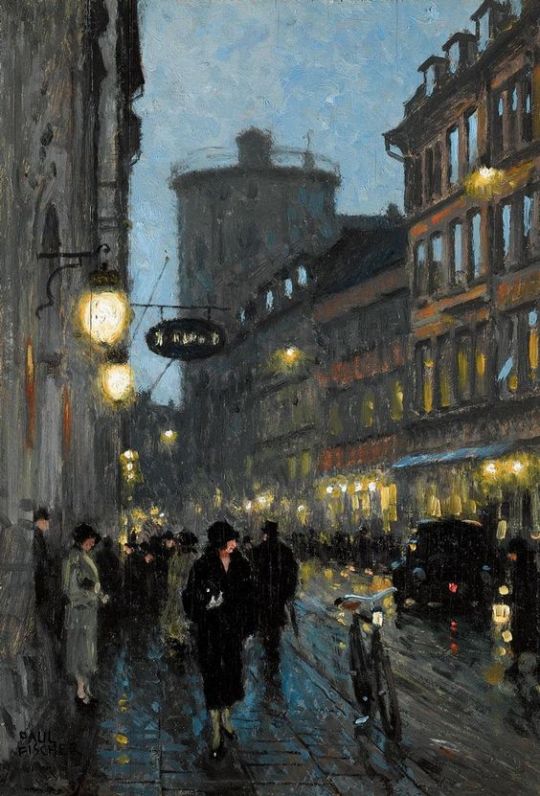
At Dusk in Kobmagergade, by artist is Paul Gustave Fischer (1860-1934).
8 notes
·
View notes
